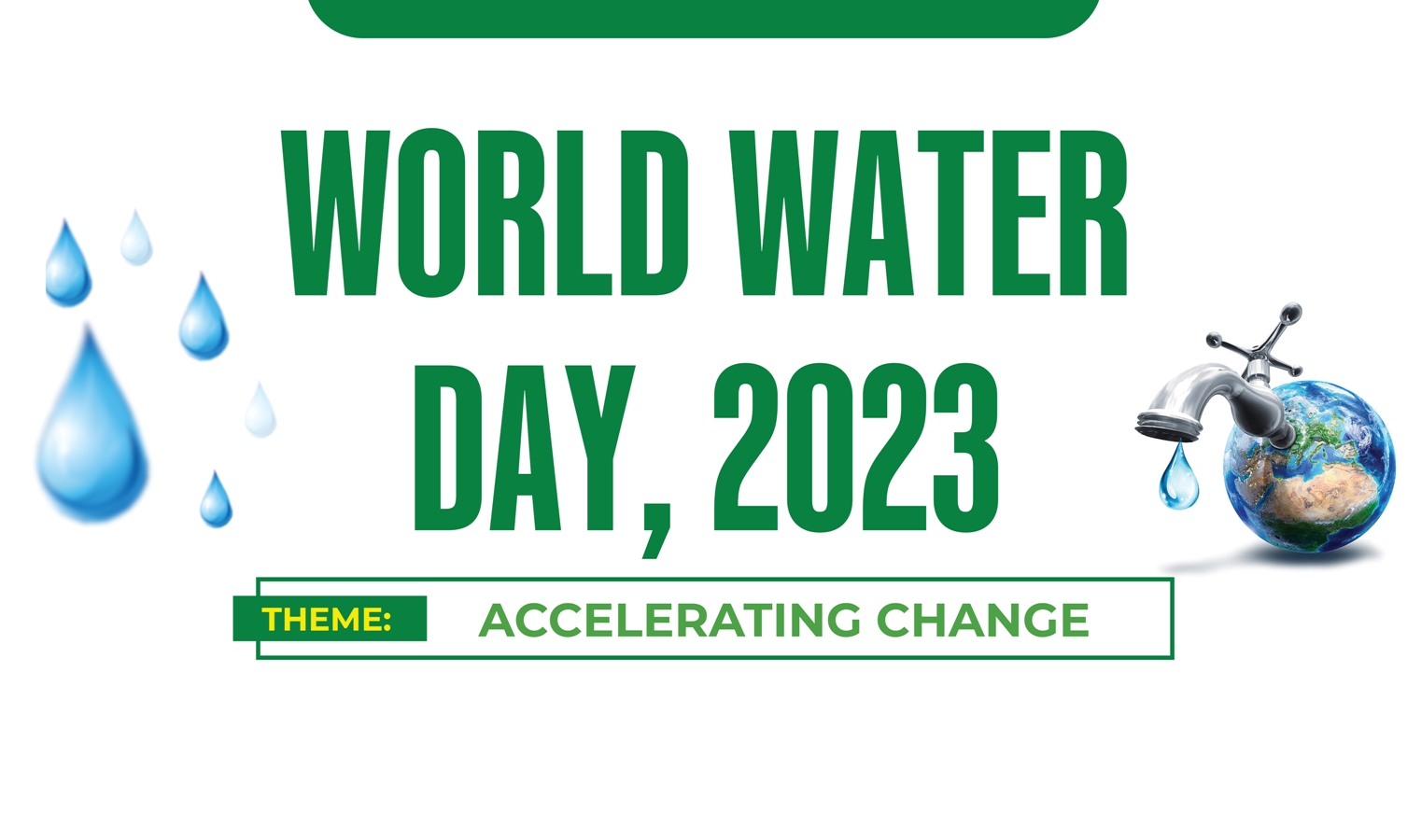By: Prof. Edward Wiafe Debrah, an Environmentalist
On the 22nd of March every year, the international community marks World Water Day. It raises awareness of water-related problems all across the world. This year’s World Water Day marks exactly two decades since the day was instituted. This year’s celebration is being observed on the theme “Valuing Water.”
The goal of World Water Day is to draw attention to the value of water and to inspire individuals, groups, and governments to take action to guarantee that everyone has access to safe and sustainable water resources.
We all share access to this valuable resource because it is necessary for life. However, about 1.2 billion people continue to lack access to clean water, and 2.4 billion do not have even the most basic sanitary facilities. Without access to safe and clean water, individuals are in danger of illnesses that are spread through water, malnutrition, and other health issues.
It is critical to bear in mind on this day that water is a precious resource that should not be taken for granted.
Water is one of the major resources of life, necessary for survival. Unfortunately, water pollution and scarcity have become major global issues due to human activity. Hazardous substances and other pollutants that are released into water sources, such as rivers, lakes, and seas, cause water pollution. The pollutants build up in the organisms, making them toxic to consume, which has a terrible effect on aquatic life. Humans are also impacted by water contamination because it can lead to illnesses and diseases.
Another global problem is the decline of water supply worldwide as a result of climate change, droughts, and other water-related catastrophes. This is particularly true in nations where agriculture is a major industry since a lack of water results in a lack of food. Water scarcity may also be caused by inadequate sanitation and water infrastructure and people may be forced to use contaminated water sources, which may cause further health issues.
Water shortage is a serious and expanding issue in Ghana. This situation is having a severe impact on public health across the nation and it is getting harder to handle. Ghana has seen an alarming water problem in recent years as a result of population increase, climate change, and inadequate management of water resources. The most urgent issue is that many rural and urban communities lack access to clean drinking water.
Access to potable water is getting harder to come by as Ghana’s population continues to rise. Water sources are contaminated with bacteria and other pollutants in many parts of the country, making them unfit for drinking and household usage. Given the growth of water-borne diseases like cholera and diarrhea, this has significant health effects on the populace.
The water situation in Ghana is also exacerbated by climate change. Less water is available in some locations due to increasingly extreme weather events like droughts and floods. Further water problems are being brought on by higher evaporation caused by rising temperatures.
Successive governments have not managed the nation’s water resources very well, though. Water levels have been reduced in several Regions as a result of improper irrigation techniques and excessive groundwater extraction. Additionally, insufficient infrastructure for water storage has resulted in water loss through leaks and wastage.
The world’s water crisis is a significant problem requiring immediate attention. In order to do this, we must take steps to lessen water pollution and enhance water infrastructure. Government initiatives to lessen pollution and encourage water conservation fall under this category. To ensure that everyone has access to clean, safe water, we also need to expand the availability of drinking water.
Additionally, we must spread the word about the crucial importance of water and the necessity of taking action to address the world’s water issue. We may inform people about the risks of water pollution and water shortages as well as the necessity for us to take action to safeguard our water sources and increase access to clean water through education and awareness programmes.
Water shortage is a significant problem that demands swift attention. To lessen water contamination and increase access to clean, safe drinking water, we must take action. Additionally, we must spread the word about the crucial situation of water and the urgency of its use. We can make sure that everyone has access to clean, safe water with the assistance of all. There are several ways by which people can participate in World Water Day celebrations. We may start by being moderate with the water we use on a daily basis. We can do this by among other things; having shorter showers, turning off the tap while we brush our teeth, correcting leaks and drips in pipes and faucets, and utilizing water-saving toilets and shower heads. We may participate in our local communities by volunteering with groups that help those in need to access clean water. We can contribute to increasing awareness and cultivating a greater feeling of responsibility for the preservation of our planet’s water resources by educating ourselves and others about water access and conservation.
World Water Day is a significant event that reminds us of the value of water and the need to safeguard this priceless resource. We can guarantee that everyone will have access to clean, safe water for years to come by making basic efforts to conserve our water resources.

